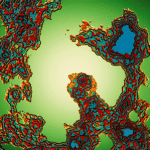It is increasingly recognized that cannabidiol can moderate many of the effects of THC, but the mechanisms by which CBD does this aren’t obvious. The neurotransmitter adenosine may be one important link.
It is increasingly recognized that cannabidiol can moderate many of the effects of THC, but the mechanisms by which CBD does this aren’t obvious. The neurotransmitter adenosine may be one important link.
Adenosine binds to A1 and A2A receptors, which can prevent THC’s impairing effect on short-term memory, according to some studies. Taking a large dose of CBD prevents the reuptake of adenosine in the brain, which may quell some of THC’s cognitive side effects.
Spanish researchers delved deeper into this interaction in a 2019 study in Molecular Neurobiology. They reaffirm previous results, showing that CBD reduced THC’s effect on cognition in male mice. CBD’s protective effect was greatly diminished when the researchers applied a chemical that blocks adenosine activity.
But the researchers go further, probing the biochemical interaction of adenosine and cannabinoid receptors. They find that the CB1 cannabinoid receptor conjoins with the A2A adenosine receptor and forms what is called a dimer. Dimers are a controversial topic in biology — it is much easier to show that these conjugates exist than to understand why they form and what they do. One plausible interpretation is that when the CB1-A2A receptor complex interacts with adenosine it prevents THC and other molecules from activating CB1, although this is not proven.
Adrian Devitt-Lee is a research scientist and longtime Project CBD contributor. © Copyright, Project CBD. May not be reprinted without permission.







